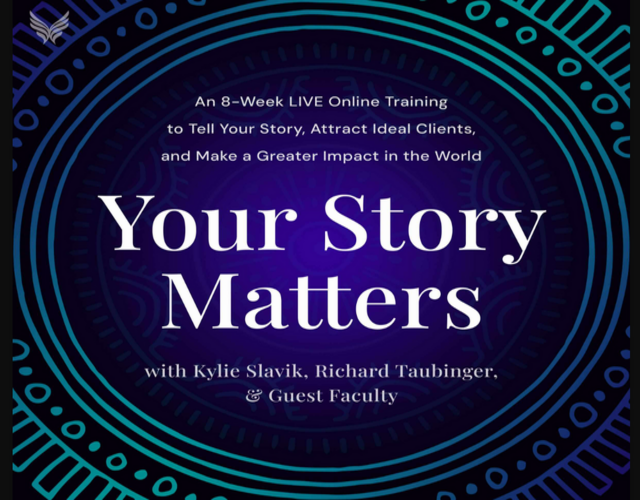Janelle Hardy, writer and somatic healer, recently produced and hosted the Healing Through Writing Festival with multiple facilitators who themselves are writers and healers. Janelle is the creator of the course, The Art of Personal Mythmaking: Write Your Memoir While Healing Yourself, which is designed as a self-directed approach to healing while writing the first draft of a memoir.
The 13-module course includes writing prompts, somatic visualisations and other techniques, and a process for outlining your storytelling. In developing the course, Janelle drew on her training and consulting experience in bodywork and somatic approaches to trauma healing. Her techniques and tools enable course participants to gain “clarity, focus and structure” as they write to heal.
Janelle also offers a 9-module, self-directed course, Write Your Life Stories, Heal Your Past, which is also designed to help us heal from our difficult experiences while working on a memoir. This self-paced memoir-writing course incorporates somatic healing techniques as well as guidance for choosing forms of storytelling, assistance in outlining a memoir, ways to overcome writer’s block and tips about the writing and editing process. The course is designed to help us deal with our difficult life experiences through writing without becoming overwhelmed.
Writing prompts and the road to healing
Throughout her Festival presentation, Janelle offered several writing prompts designed to elicit recall and identify elements of our life story. The prompts covered both challenging and rewarding experiences, bodily sensations and personal insight. I found the prompts particularly fruitful for “loosening the cobwebs”.
By way of illustration, Janelle shared her own story of chronic fatigue and her acute shyness. She would often experience a “frozen state” and become “stuck”, with her creativity blocked. After a relationship breakup, she had to deal with her role of a single parent and, at the same time, cope with her negative self-stories. She sought healing through multiple modalities including somatic experiencing, dance, writing and research and experience of different cultures.
Janelle highlighted the fact that we store and release stories in our bodies. This is in line with the research and writing of Bessel Van Der Kolk who published the book, The Body Keeps the Score: Mind, Brain and Body in the Transformation of Trauma. Janelle introduced a basic somatic exercise during her presentation that involved listening to sounds, touching, stretching and feeling bodily sensations. She incorporates somatic practices in her courses because she firmly believes that we can reclaim ourselves through our “bodies, stories and desires”. Janelle described dance as an “embodied language” and found that it helped to reduce her stiffness, tightness, stress and related feelings.
Janelle explained too that we understand the world through cultures. To really appreciate this idea, she became an exchange student and undertook home stays in Japan, Russia and Canada. Given the pervasive nature of cultural influences, a useful writing prompt could be, “What influence has your cultural upbringing had on your own life story and how you perceive yourself?”
I recently gained an insight into the influence of cultural experiences on our self-stories and how we perceive ourselves by reading the novel Runaways, a memoir by Shelley Davidow and Shaimaa Khalil. The joint memoir tells the story of their 20-year friendship across cultures after meeting at the University of Qatar where Shaimaa was one of Shelley’s students.
Not only were they “strangers in a strange land”, but also they brought to their relationship and self-stories the influence of their different cultural upbringings – Shelley was an Ashkenazi Jew from South Africa (with its entrenched racial tensions) and Shaimaa was an Arab Muslim from Egypt (with its class tensions). Their memoir shows the intertwining of different cultures on the stories they shared and how their story was influenced by their life in Qatar.
Shelley and Shaimaa explain what shaped them, broke them and the ways they returned to “wholeness”. At different times in their shared storytelling they communicated their individual experiences and reactions in the form of a reflective poem.
Janelle offers a series of writing prompts which are available from her website by subscribing to her newsletter: 10 Memoir-Writing Prompts for Healing and Transformation. Her blog, which contains interviews with creative writers, essays on writing and reviews of websites, is a potentially fertile ground for other prompts.
Creating a theme for a memoir
The process of writing to story prompts enables us to discern various themes, common threads, in our life story. We can then choose a theme to shape our memoir – exploring which stories in our life serve the theme. Janelle explained that the selected theme then becomes a “tool for discernment” – assisting us to decide what stories to include and what to exclude. We can potentially use the discarded stories as the basis for another memoir.
This process of choosing a theme reminds me of my process in writing my doctoral thesis – the data collected could have been the basis for several different theses but I had to decide what was my central “claim to knowledge” and what data I could include to warrant that claim. This involved then deciding what elements supported the core thesis and should be included and what should be left out. I created a folder to store the other ideas and concepts for perusing at a later date. When I submitted my thesis, I revisited my folder and produced a number of articles including one on the art of thesis writing as a movement through the Seven Chakras, from the Base Chakra to the Crown Chakra – a reflection on my thesis writing journey. The thesis also incorporated my reflections on my role as a change manager within the Taxation Office – a potential theme for a memoir.
Janelle noted that memoir writers often write more than one memoir as they have several themes running through their lives. The Australian author Shelley Davidow, for example, wrote 4 memoirs – Runaways (2022), Shadow Sisters (2018), Fail Brilliantly (2017) and Whisperings in the Blood (2016).
Janelle explained that a memoir becomes a meaning-making force that enhances agency and autonomy. She shared her story of heartbreak and challenge that left her feeling abandoned and hurt. Through writing, social support and somatic healing she was able to reframe her story from that of victim to someone with skills, choice-points and the opportunity for further personal development through self-employment. She rewrote her story by “piecing together somatic healing and memoir-writing as an act of service” that enables people to avoid the disempowerment of a victim mentality and experience agency through creating a new self-story in the form of a memoir.
In her podcast, Janelle talks to storytellers and memoir writers along with healers. The transformative conversations cover not only memoir-writing but also healing, narrative therapy and embodiment. Through the podcast, storytellers share how they have moved from victimhood to personal freedom and agency.
Reflection
Janelle has used her blog as a source of “personal mythmaking” by reflecting on her own life experiences as she shared insights on topics related to writing and healing. Her essay and audio on “How to Shift Resistance” is a good example.
I have found that in writing this current blog, I have been able to share my personal reflections on the topics I was writing about. In the process I have been sharing my life story. In reviewing the 775 posts I have published to date, I have been able to identify several core themes that would serve as the focus of separate memoirs. I have now chosen one focal theme and begun writing my first memoir using the Kindle Create program as my writing and formatting process.
As we grow in mindfulness through somatic practices, reflection, blogging and memoir-writing, we can increase our self-awareness and sense of agency and reframe our life stories.
_______________________________________________
By Ron Passfield – Copyright (Creative Commons license, Attribution–Non Commercial–No Derivatives)
Disclosure: If you purchase a product through this site, I may earn a commission which will help to pay for the site, the associated Meetup group and the resources to support the blog.





